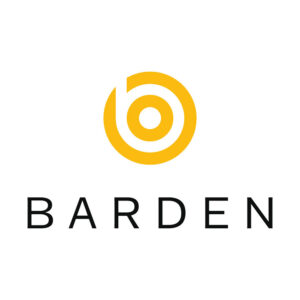Your personal brand is a definer of success in your career and the most visible marker of you and what you stand for. Here, in the latest article from the new Barden & Chartered Accountants Ireland Career Guide 2023, Veronica Canning, motivational speaker executive mentor and consultant, and author explains why.
My definition of a personal brand is, “what people say about you when you leave the room”. It’s not what you say it is. It’s what others say it is—what others say about you. You know what I mean. Usually, the description is short, pointed and deadly accurate. Irish people are good with words, and there’s none better when putting someone down. So, your personal brand is not what you say it is. It’s what others say it is. It is also a definer of success in your career as it is the most visible marker of you and what you stand for and, as such, it offers you the chance to take control of what people say about you in a corporate setting. It can give you a distinct advantage in having an active input into building your career.
Listen well the next time you hear the side comments after a meeting, especially when someone has been upset. How many times have you sat in a room and heard someone being written off with one sentence, or heard someone else being damned with faint praise? Whether or not you believe you have a brand, such comments constitute it. Think of the most memorable descriptions that you have heard. Remember that a similar comment could be attached to you.
Often admiration is expressed in few words, like: ‘rising star’, ‘jet-propelled’, ‘one to watch’, ‘born gentleman’, or ‘straight as a die’. Everyone has a personal brand. It’s not something you can opt out of. It is inevitable, but the good news is that you can control whether yours is ‘purposeful’ or ‘accidental’.
A crucial point is that what your brand looks and feels like is up to you! I believe that when you take control of all aspects of your personal brand, you craft a purposeful one that is authentic and is an integral part of your career plan. In addition, a purposeful brand is considerably more likely to be a positive one, as you will see as you read on.
I often say this to audiences when speaking at conferences, and I see the odd sceptical face, but when I ask them if their personal brand is accidental or purposeful, the scepticism disappears. They move to questioning which kind of personal brand they have. It is an enlightening moment when you realise that every day people are interacting with you and judging you by your appearance, accent, behaviours, moods and by your impact on them. If you are unaware of this and just do and say what you want, as you want, without reference to those around you, you definitely do not have a purposeful personal brand. Exploring your personal brand begins with these four hard-core truths:
You are at the centre of you personal brand
The number one truth is that you are at the centre of your personal brand. It is built on you and your values, it emanates from you, it is played out by your behaviours. For it to succeed and contribute to your development it must be authentic. You may think you can fake it like the person who asks everyone how they are and wants to look like they care, but then rosters them on long hours, or ignores requests to take leave for important occasions like weddings and funerals. They fake that they are good people managers and care about their staff, but their deeds show that all they care about is results. You may be good at faking it, but believe me, others will eventually see the real you. The inconsistency between the two is surprisingly visible to observers. It is often given away in subliminal ways and expressed as a feeling or intuition. There is a dissonance, and observers catch it. Someone will express a fear that the person “is not all they seem to be”, or “there is something off about that person” and the result is an accidental brand, not a purposeful one.
You are in charge of your personal brand
You create your brand daily, and you are responsible for it. Every action you take further defines it. It is vital that you realise that it is not an optional extra that you may get to later, when you are happy, wealthy and wise. It is a big part of you now, at this moment. There is no point blaming your colleagues or your boss if you are in difficulty at work. You are a key player in your own drama.
Often, when I work with people who hate their job and everyone they work with, they see the answer as leaving so they can start afresh in a new place. I always remind them that the unfortunate reality is that they take themselves with them to the new job. It’s far too easy to blame everyone else when you are the problem.
It is your single biggest transportable asset
As people move away from having a job for life, or being a ‘lifer’ in one company, and move to having a career made up of different parts–jobs, periods of transition, breaks for education or childcare and, increasingly, periods of unemployment–your brand becomes your most valuable transportable asset.
In an increasingly fluid workplace, you have to move to a ‘portfolio’ approach to your career. You are the only constant as you move through a career spanning decades. You therefore need to concentrate on imagining yourself as a little enterprise, ‘You Incorporated’, with unique skills, competencies and a personal brand.
It is a vibrant, evolving part of you
The core ‘you’ remains more or less the same, but your confidence, experience, self knowledge, projection and the extent of your fame changes. You will not have the same personal brand as a mid-level executive as, later, a successful senior executive – at least I hope you won’t.
The key message is that you have a brand at every stage, and as you learn from your mistakes, you will continuously adjust it. The great thing about getting older is that although you keep making mistakes, they are different ones, and you avoid repeating the disasters of the earlier part of your career.
Source: Career Guide 2023 by Chartered Accountants Ireland and Barden.


 Jump Back
Jump Back

